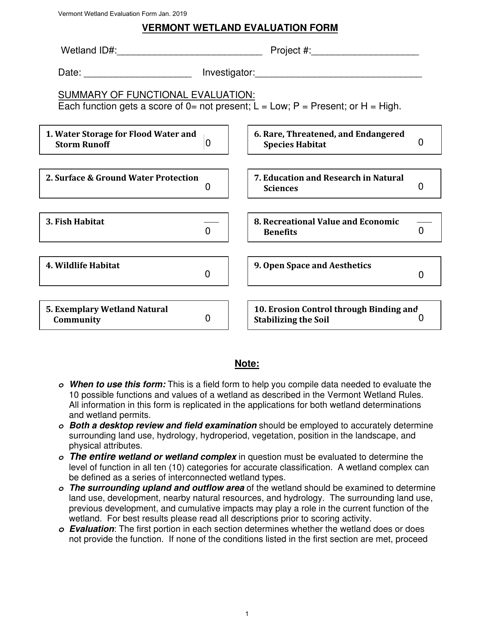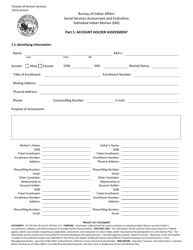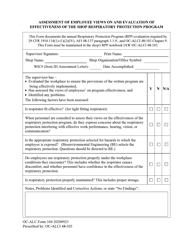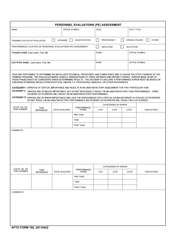Vermont Wetland Evaluation Form - Vermont
Vermont Wetland Evaluation Form is a legal document that was released by the Vermont Department of Environmental Conservation - a government authority operating within Vermont.
FAQ
Q: What is the Vermont Wetland Evaluation Form?
A: The Vermont Wetland Evaluation Form is a tool used to assess wetland conditions in Vermont.
Q: Why is the evaluation of wetlands important?
A: The evaluation of wetlands is important for determining their ecological value, as well as for making decisions regarding land use and development.
Q: Who uses the Vermont Wetland Evaluation Form?
A: The Vermont Wetland Evaluation Form is used by environmental professionals, landowners, and government agencies in Vermont.
Q: What does the evaluation form assess?
A: The evaluation form assesses various factors such as wetland functions, hydrology, vegetation, and wildlife habitat in order to determine the overall condition of a wetland.
Q: How is the evaluation form scored?
A: The evaluation form uses a scoring system based on different criteria, and the scores are tallied to determine the wetland's condition.
Q: What are the different conditions that a wetland can be classified into?
A: Wetlands can be classified into five condition classes: Exceptional, High, Moderate, Low, and Poor.
Q: What can the evaluation results be used for?
A: The evaluation results can be used to guide wetland management, restoration efforts, and permit decisions related to wetland impacts.
Q: Who can assist with the completion of the Vermont Wetland Evaluation Form?
A: Environmental consultants, wetland scientists, and experts from the Vermont Wetland Program can assist with the completion of the Vermont Wetland Evaluation Form.
Q: Is the Vermont Wetland Evaluation Form mandatory?
A: The use of the Vermont Wetland Evaluation Form is not mandatory, but it is recommended for assessing wetland conditions in Vermont.
Form Details:
- Released on January 1, 2019;
- The latest edition currently provided by the Vermont Department of Environmental Conservation;
- Ready to use and print;
- Easy to customize;
- Compatible with most PDF-viewing applications;
- Fill out the form in our online filing application.
Download a fillable version of the form by clicking the link below or browse more documents and templates provided by the Vermont Department of Environmental Conservation.

























